This post is for the dance junkies and the traveling dance instructors. But anyone who has caught the dance bug can probably relate.
Backstory
There was a time when I took nine dance classes a week. There was a time when I went dancing four or five nights a week. I went to an all-night party a couple times a month. I drove 14 hours for a blues birthday party. I stayed up till dawn, weekend after weekend. I danced for 17 hours a day with only enough break-time to change venues or get dinner with friends.
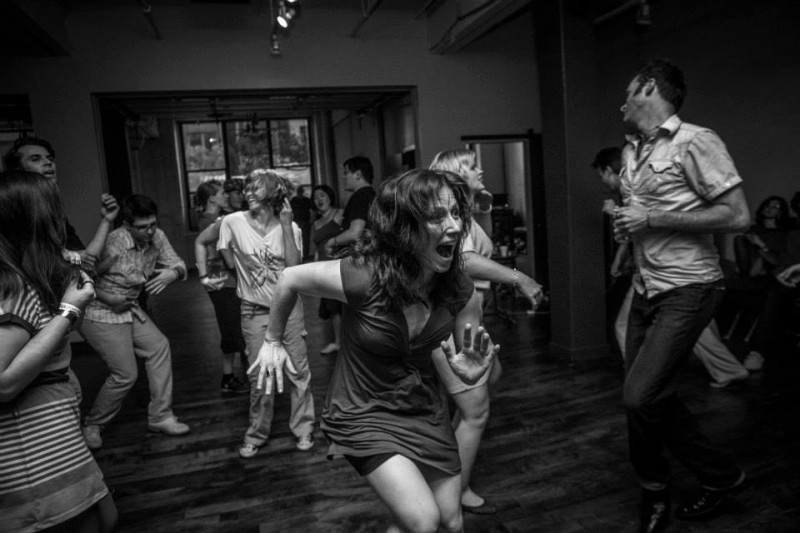
This is Sunday night of a four-night Blues event in Chicago called the Chicago Underground Blues Experience. People have been partying for four days and the DJ just put on some bouncy pop music. As you can see, everyone has lost control.
The post-exchange blues, a common phenomenon, was bemoaned on dance boards of yore (Yehoodi! Swingtalk! Gargleblaster Blues! Blues Pulse!) and carried forward to Facebook conversations of today. The return to real life, real job, real sleep schedules after 2-3 days of non-stop fun, socializing and dancing leaves people with a chemical deficit. The dopamine and oxytocin stops flowing. You’re back at your work computer, faced with a pile of work, homework, and maybe that same old partner who doesn’t magically change every three minutes.
Dance Exchange culture is a high-reward lifestyle, with an easy shot of happy new chemicals every few minutes. Instead of drugs, we rely on a cocktail of dancing, talking, hugging, eating and drinking to keep the flow of happy chemicals steady. Robb Wolf talks about high-reward food choices in the context of diet, but to me the parallels to dance culture are close enough to consider:
“Certain foods can reduce anxiety and irritability and place us in a more positive place. This is due to the effects food can have on opioids, serotonin, and dopamine. Chronic exposure to foods eliciting these responses will down-regulate our sensitivity to these transmitters and force us to eat more to elicit the same mood altering response.”
Dancing has a similar reductive effect. Like getting stoned, you only need one hit at first to get high. A night of dancing can be incredibly satisfying, but once you go through the full exchange experience, a night of local dancing just doesn’t build the same high. Some have even argued that the more experienced a dancer becomes, the less they enjoy dancers of all levels. Don’t we then keep exposing ourselves to more dance culture, more fun, more party to keep eliciting the same response? And if we aren’t at the party, isn’t it a little bit tempting to party by proxy by scooping up news of the latest event on Facebook, Instagram or Twitter?
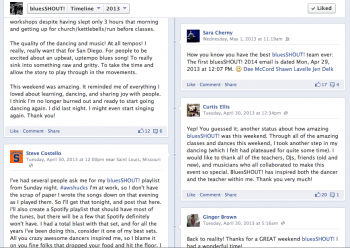 In the absence of being at the event, we’ve learned to stimulate our reward centers by interacting with the digital representations of our beloved communities, clicking on pictures of parties, enviously reading and commenting on status updates, embroiling ourselves in heated scene politics debates—anything to stay connected to the party.
In the absence of being at the event, we’ve learned to stimulate our reward centers by interacting with the digital representations of our beloved communities, clicking on pictures of parties, enviously reading and commenting on status updates, embroiling ourselves in heated scene politics debates—anything to stay connected to the party.
FOMO: defined
As social media has expanded and become a very integral part of the dance community, the very real phenomenon of Fear of Missing Out (FOMO) impacts us all. FOMO has been written about in multiple media channels and clearly affects people of all walks of life. For us it’s a highly tangible part of our interactions. “Are you going to xyz exchange? You HAVE to be there!” When the stream of posts, photos, and videos hitting your news feed as the latest big event is in full swing, it’s hard not to feel left out of the action when it’s all being reported LIVE!
The Good
Part of this is good. It’s good press for the organizers. It means continued success for their event. Attendees largely choose to go to events because of who else will be there or because of who was there last year. And they want you to be there. So in an attempt to get you to go next year, your friends will guilt you by pointing out repeatedly how awesome a time they’re having without you, because wouldn’t you rather be there with them?
User generated press is always more believable than official advertisements and word of mouth is largely how our community thrives. (Most advertisers would kill, or pay moles to engage in the kind of evangelism we use to promote events.) Everyone’s capitalizing on FOMO to generate better attendance and greater success for the events they run or choose to attend. While it’s easy to fall prey to FOMO relative to your normal life, (and there’s enough documentation out there to help you work through it) here’s another less commonly defined phenomenon that concerns me: Fear Of Missing In.
FOMI: defined
The more I considered taking a break from extended travel in 2014, the more I realized FOMO would affect me. But all that time on the road was creating a stronger fear, that of missing out on who else I might be, on my other unexplored potential, on all of the non-dance interests and obsessions that I don’t have time for when I’m in the full swing of a dance tour. It’s Fear of Missing In… what’s In me.
I’ve been trying to write this blog entry for over a month. The first date of this draft is from 12/28/13. So, I was amused on 1/28 during a round of revisions to find that when I re-ran a search for FOMI, a new result turned up. Previously, there was no search result for FOMI. I thought I’d coined the term. But, it looks like somebody else was also experiencing end-of-year FOMI. The fact that I’ve been occasionally hacking at this topic for more than a month says that it’s hard for me to admit, hard to put it out there.
There’s so much else I want to do with my life. I’m not even sure if I want to describe my other ambitions. Part of me believes that writing them here will relieve the built up pressure I have (and need) in order to enact my new plans. So, I’m sorry if you’re curious. I can’t satisfy your curiosity about my goals. The deeper question for me is, do I have an identity separate from Ruby-The-Dancer? If dancing were to be stripped out of my life, what would be left?
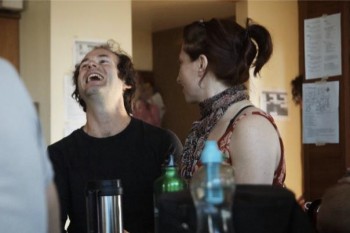
Making Ted laugh out loud is one of my great joys life. Whether we’re dancing or not, we always have a good time.
The Point
What’s my point? Dancing is important. It’s how we connect. For many of us, it’s how we build friendships, relationships, and valuable networks. But it’s based on high-reward partying, which emphasizes novelty and constant change. It’s a highly structured way of interacting with yourself and your surroundings. It allows you to move on to the next dance, the next new and shiny, but often without going deeper. It’s a wonderful moving meditation, a way of being in the moment, and of experiencing flow. No doubt the more you do it, the better you get at it. But at what cost?
It’s a way of avoiding the rest of your life: avoiding relationships with people who don’t share your obsession, avoiding the study of deeper topics that aren’t as immediately rewarding. It’s a way of justifying not having a regular sleep schedule, of getting out of learning something that requires different skills. It’s a way of excusing yourself out of possible plans to go back to school, eat a better diet, quit drinking, pay off your debts, or write more because those things are harder to do when you’re dancing every other weekend.
I’m at odds here, because as a dance professional, I want more people to dance. Dancers inhabit their bodies more fully and have fewer hang-ups about interpersonal interactions. I want more people at events. I need people to be willing to sacrifice money, work, personal time, family and relationships to spend a weekend at my camp, learning from me.
But I also want rich dancers; dancers who bring outside perspectives, dancers who have other obsessions, dancers who play sports, or musical instruments. I prefer dancers who practice something else regularly, so that when I try to impress on them that practicing my drills every day will improve their dancing, they’ll believe me and do it, because studying something else always gives you new perspectives on your dance.
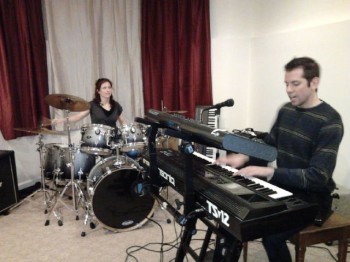
Playing with Kyle Greer and Keith Instigators
Yes, sometimes taking time off and spending the money to go to the party is worth it. It’s mind expanding. You learn something. You shake off the day-to-day struggle. You make friends. Fun and friends are part of your quality of life. But there’s a plateau to this kind of continual play, where dance becomes your whole world and your facebook feed of fellow dancers is your only source of news in the world. It’s a wonderful, yet limited world-view.
So, step out and do your thing, the thing that makes you you outside of that fishtail or that swing-out. I need you to bring YOU to the dance instead of being a cookie-cutter dancer. Bring your sense of learning, your ideas, your concepts, your fashion, your quirks. This is what makes a rich dance culture. This is what makes a community I can always come home to, no matter how many times I step out to do my own thing.


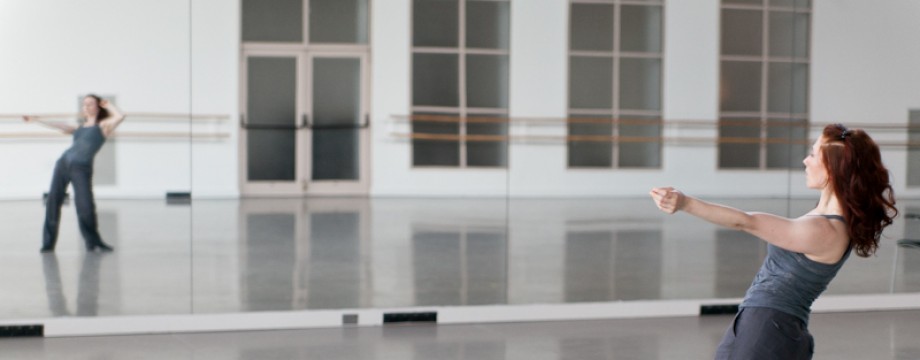
This is something I have struggled with for a long time. I have a diverse set of interests and the pursuit of those is often hindered by dancing. That is not to say I dislike dancing in any way. I love it but I don’t want to become one dimensional. I have always had many interests and pursuits and I find that sometimes they get put to the side due to my own FOMO. But then when I get pressured by one friend to go to X and then another to go to Y I definitely think about how my other activities may suffer.
Sometimes I even notice this in other people. At dancing down times in these events I have often struck up conversation with an enthusiastic dance traveler and found myself disappointed. They can be a wonderful dancer but when it comes time to chat over dinner that is all they have to talk about. It can be so nice to discus the other wonderful aspects of life but there is nothing else there. They can only discuss dancing, aspects of dancing, who’s fun to dance with, ect. It especially saddens me with dancers that I really look up to. This is not being used as a blanket statement that applies to everyone but it has happened with frequency.
I really enjoyed this blog, Ruby! It’s always good to know I’m not the only one! You’ve given voice and form to some rambling thoughts I’ve had about my own dance life. Thank you for that!
Yes! So, so good! Every word of this.
I spent 2009 and 2010 on the FOMO Train: 30+ weekends per year spent traveling for dance, mostly on my own dime. I picked up wonderful experiences and friends, but also exhaustion. By early 2011, I was aware that I was splitting my energy between dance life and my personal and professional pursuits – and, worse, I wasn’t even progressing as a dancer; if anything, I felt like I was eroding from overuse and fatigue.
In mid-2011, dance life came to a screeching halt, due to an interstate move followed immediately by a months-long professional project. At the end of the project, I came to a stunning realization: for the first time in five years, my dance event calendar was empty. I wasn’t registered for anything! And… I didn’t care! There was a whole new city to explore, and new friends to make, and, you know, other types of life stuff.
To use your terminology – FOMO was suddenly much important than FOMI. I made a very conscious decision: I could go back to putting my energy into dance, and maybe make some incremental progress or maybe continue to go nowhere; or I could put my energy into my professional and personal life, and get A LOT out of it, guaranteed.
I often miss dance, but I have no doubts that I made the right choice for my circumstances.
Thank you so much for writing this. As a person who loves dance–and a whole lot of other things–I find it really difficult to explain to people why I won’t be at this or that dance event halfway across the country, and don’t feel a lot of support from other dancers to work at being a rich, multifaceted, continually-growing person. So it makes a big difference to me to have someone who stands to lose something by saying so stick out their neck and talk about the way that, for instance, “It allows you to move on to the next dance, the next new and shiny, but often without going deeper.”
…and now I’m going to go write a letter, like on paper, to a dancer friend across the country~
These are some wonderfully important life reflections, and not just for dancers. Thanks for writing.
Thank you for writing this Ruby, people are always messaging me or coming up to me at dances asking why I wasn’t at such and such dance or event. It’s hard for them to understand that I have other passions or events.
As someone who actually left dancing for close to five years because of the burn out you can get from trying to avoid FOMO and not growing many friendships outside of dance I truely believe in FOMI. Thank you for giving it a name.
Thank you for posting your thoughts. They are beautiful. Life is full of so many interesting choices, sometimes. :-)
This FOMI and FOMO has been and interesting dichotomy in my life. Like David Stein, I’ve spent a couple years of doing almost nothing else on weekends than traveling to dance stuff, and it’s left me high, and connected to the dance, but completely disconnected from the place I live and my professional work.
San Francisco is a beautiful city, with lots of beautiful people, and I only know such a small population of it: dancers.
I’m right there with you Ruby. I’ve been reinvesting in my personal self lately, and while it was hard at first, I feel like a much more solid person after remembering who I am deep inside.
I’ve made my peace with FOMO. It’s a huge thing in the city I live in, and I still run afoul of it in my life, having stuffed all my free time with activities left and right. But I’ve definitely made calculated decisions to not pursue many dance activities or exchanges because I do see how easily I could get allow myself to be completely pulled into the dance world…and there is a lot of me that existed before dance that I’d like to keep alive. Note: I’ve been dancing for ~3.5 years.
RUBYYYYYYYY, great post, so glad that I stopped by to witness your words about what I see as a small tragedy- both in the Dance and Art community. As a look back i at almost 15 years of dancing, and before that, many more years of working as an artist, I see that it takes a certain personality to even be able to focus that much work and effort in any arena of the arts. I have been thinking at great length ( and am working on a book) about “practice” and it’s many vagaries. It takes a lot of insight, suffering, and ( not the least, but often surprisingly absent) intelligence & desire to discover a way to be multi-dimensional. I suspect there’s a great deal of “maturity” of one kind of another, for lack of a better word at the moment that builds FOMI, and is the thing that is most obviously lacking in those who can dance but still can’t make a living, etc. as an art professor, over the course of seeing thousands of students come and go, I’ve started having conversations like this:”it’s nice that you can make this masterpiece, but what else are you going to make your life about, and how does this fit into the larger persoective of a life well lived… Since in the end, it’s unlikely that you or any one else will care that you can paint, or, for the most part the world will not recognize how well you dance compared to the other guy, so how are you going to make peace with that?”
Thank you for writing this and sharing it publicly. The longer I spend between dances, the more I seem to enjoy them when I’m there, and the freer I feel to be myself at them.
Lynn… it’s like you’re reading my mind. Wait till next week post comes out!
Well said. I have also experienced this. I spent a good 3-4 years on the FOMO train for dance events/functions. The last 2 years I have pulled way back on dance opportunities and allotted more time to other things in my life I’m interested in. It’s been great for me. Sure, there are times I see I haven’t traveled for dancing in more than 2 months but it doesn’t bother me. Instead, I pick a few choice/larger events I want to go to per year (usually planning out the first 6 mths and last 6 mths per year for finances) and focus on them. It has made me appreciate these events that much more – since I am not out in the community as much or seeing the same folks as often.
I also agree with Tony – I have been disappointed when I spend downtime with folks at dance events and find they ONLY want to talk about dance stuff. I understand that that is our initial common interest, but if they have nothing else to offer up, to share with me who they really are – I get pretty bored.
I’m glad to have seen this. I’ve started swing dancing when I was 16 years old, and hit the high point of 3-4 dances a week, for a year and a half in college. I burned out on dance, mentally. Physically I was in the best shape of my life, but I was exhausted and my grades started to suffer. I quit dancing during the last two-three years of college, and once I entered ‘the real world’, I found it hard to incorporate it back into my life.
I still have friends in the dance community and have started coming back out to dances more as of late…but I find myself frustrated with the balancing act of my personal/professional life with my love of dance. I miss the community and feel bad when I see some event in Chicago that I’ve missed because I work and live in the suburbs.
Currently, my husband and I are taking small steps to get back into dance, mainly just dance lessons…which help our connection. What got us back into dance was attending a Tri-City Swing dance in Batavia. My husband noted that dancing gives me a different kind of happiness, and your description of the dance being a ‘high-reward’ activity is something I agree with. Thank you for writing this article.
The dangers of becoming a banana republique. Great piece Ruby. Intentionally splitting time away from dance has been very enjoyable over the last 2-3 years. Post dance WE is of course a nightmare; quality sleep diet and exercise being the only available exit strategies. Living other experiences outside the dance scene has greatly nurtured my inner energy source. Dancing every 2-3 weeks, am brimming over with positive mojo and every tanda is delish (well almost). If exposed to the dance scene again for any length of time it feels a little like cannibalisation – the recylcling of the same energy. Hunger for the oxygenation of other pursuits naturally flows. Enjoy the dance saturation when you’re in it, but the colour seems to naturally fade when it’s time to leave the party & tune in elsewhere.
Great post, I’ve been struggling to verbalize exactly how I feel about dancing at the moment but you’ve gone and done it for me.
Thanks :)